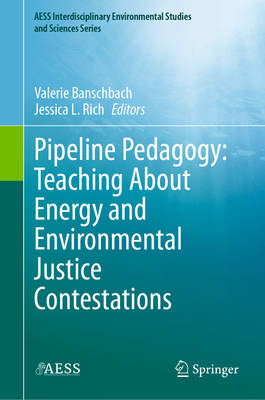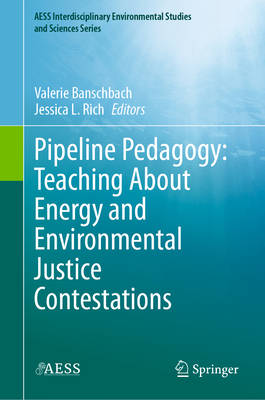
- Afhalen na 1 uur in een winkel met voorraad
- Gratis thuislevering in België vanaf € 30
- Ruim aanbod met 7 miljoen producten
- Afhalen na 1 uur in een winkel met voorraad
- Gratis thuislevering in België vanaf € 30
- Ruim aanbod met 7 miljoen producten
Zoeken
Pipeline Pedagogy: Teaching about Energy and Environmental Justice Contestations
€ 126,95
+ 253 punten
Omschrijving
The proliferation of pipelines to transport oil and natural gas represents a major area of contestation in the landscape of energy development. Battles over energy pipelines pit private landowners, local community representatives, and environmentalists against energy corporations and industry supporters, sometimes drawing opposition and attention from well beyond the impacted regions, as in the case of the Standing Rock/Dakota Access Pipeline. Stakeholders must navigate complex government regulatory processes, interpret technical and scientific reports, and endure lengthy and expensive court battles. As with other forms of environmental injustice, the contentious construction of pipelines often disproportionately impacts communities of lower economic development, people of color, and indigenous peoples; pipelines also pose potential short and long-term health and safety threats. With the expansion of energy pipelines carrying fracked oil and gas across the United States and abroad, the moment is ripe for teaching about pipeline projects and engaging students and community members in learning about methods for mobilization. Our volume examines pedagogical opportunities, challenges, and interventions that campus-community engagement, and other kinds of community engagement, produce in relation to infrastructuring in the form of pipeline development.
Specificaties
Betrokkenen
- Uitgeverij:
Inhoud
- Aantal bladzijden:
- 160
- Taal:
- Engels
- Reeks:
Eigenschappen
- Productcode (EAN):
- 9783030659783
- Verschijningsdatum:
- 7/03/2021
- Uitvoering:
- Hardcover
- Formaat:
- Genaaid
- Afmetingen:
- 196 mm x 239 mm
- Gewicht:
- 453 g

Alleen bij Standaard Boekhandel
+ 253 punten op je klantenkaart van Standaard Boekhandel
Beoordelingen
We publiceren alleen reviews die voldoen aan de voorwaarden voor reviews. Bekijk onze voorwaarden voor reviews.










